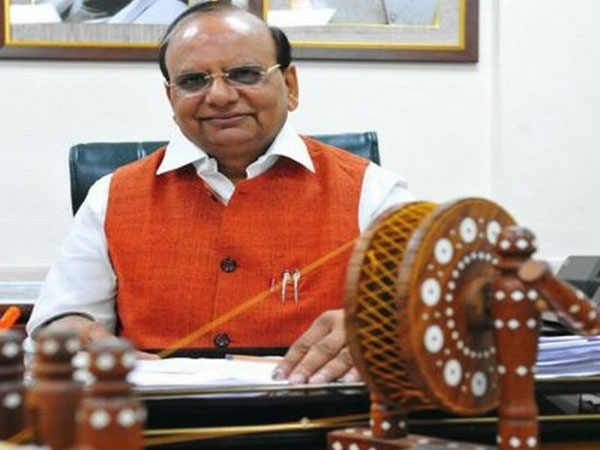New Delhi [India]: Delhi Lieutenant Governor VK Saxena has approved the draft notification for amendment in Delhi Prison Rules 2018 that will pave the way for pre-mature release of “incapacitated prisoners” undergoing a fixed-term imprisonment in Delhi Jails, said an official release.
The amendment has been made in compliance with a Delhi High Court order, passed while hearing a writ petition that sought the pre-mature release of infirm prisoners in terms of the reports of the All India Committee on Jail Reforms (1982-1983 Mulla Committee) and model Prison Rules, 2003.
The amendment seeks to ensure a humanitarian approach towards such old-age, infirm prisoners, while also decongesting Delhi’s over-crowded jails at Tihar, Mandoli and Rohini which are housing over 20,000 inmates against their total capacity of 10,026 only.
As per the amendment, Rule 1246-A has been inserted in the Delhi Prison Rules 2018, as proposed by the Prison Department and concurred by the Home and the Law Departments.
Accordingly, the draft notification was sent to the LG for approval by the Home Department.
As of now, as per Rule 1251 of Delhi Prison Rules 2018, only life convicts who have spent their 14 years of actual sentence, are pre-maturely released on the recommendations of the Sentence Review Board.
But with the amendment in the rules, “incapacitated convicts” – those aged 70 years and above and unable to perform his, or her daily tasks – could be released pre-maturely on the recommendations of the Review Committee, especially set up for this purpose.
Such prisoners include those undergoing either rigorous or simple imprisonment for a fixed term of sentence, and their appeal against the convictions has been decided by the appellate courts.
However, these rules shall not apply to any incapacitated convict or otherwise who has been sentenced to death or is a life convict or prisoner convicted under offences under the NDPS Act, 1985 POCSO Act, 2012 or Negotiable Instrument Act, 1881 or Unlawful Activities (Prevention) Act, 1967 Terrorist and Disruptive Activities (Prevention) Act, 1985 or any offences relating to terrorism or the cases investigated by the National Investigation Agency or offences under the Prevention of Corruption Act, 1988 or Prevention of Money Laundering Act, 2002.
As per the amendment, only a convict who has been declared “incapacitated convict” by a Medical Board and has undergone at least 50 per cent of his, or her actual sentence awarded (without counting the period of remission earned), after conviction and whose case is covered under these rules will be eligible to be considered for remittance of the sentence for their pre-mature release.
There will be an Evaluation Committee to evaluate the medical condition of the convict based on certification of the Medical Board.
The Evaluation Committee shall comprise the Deputy Inspector General (Prisons), Range, Superintendent of concerned Jail- Member Secretary, Resident Medical Officer Jail- Member, and atleast two Specialist Doctors of the relevant field from any Government Hospital to be nominated by the DG (Prisons) – Member.
Further, a Social Investigation Report including feedback from the victim(s) of the crime involving the convict, too will have to be submitted to the Committee while deciding the remittance.
The DG (Prisons) may also take the opinion of any medical authority like AIIMS as it deems fit. The Evaluation Committee may also recommend whether the convict is fit for premature release under this rule.
The Evaluation Committee will have the right to reject the release of a convict and the release will not be the right of the convict. All eligible cases, recommended by the Committee, will be submitted to the LG for approval of remittance of the remaining sentence for pre-mature release.


























